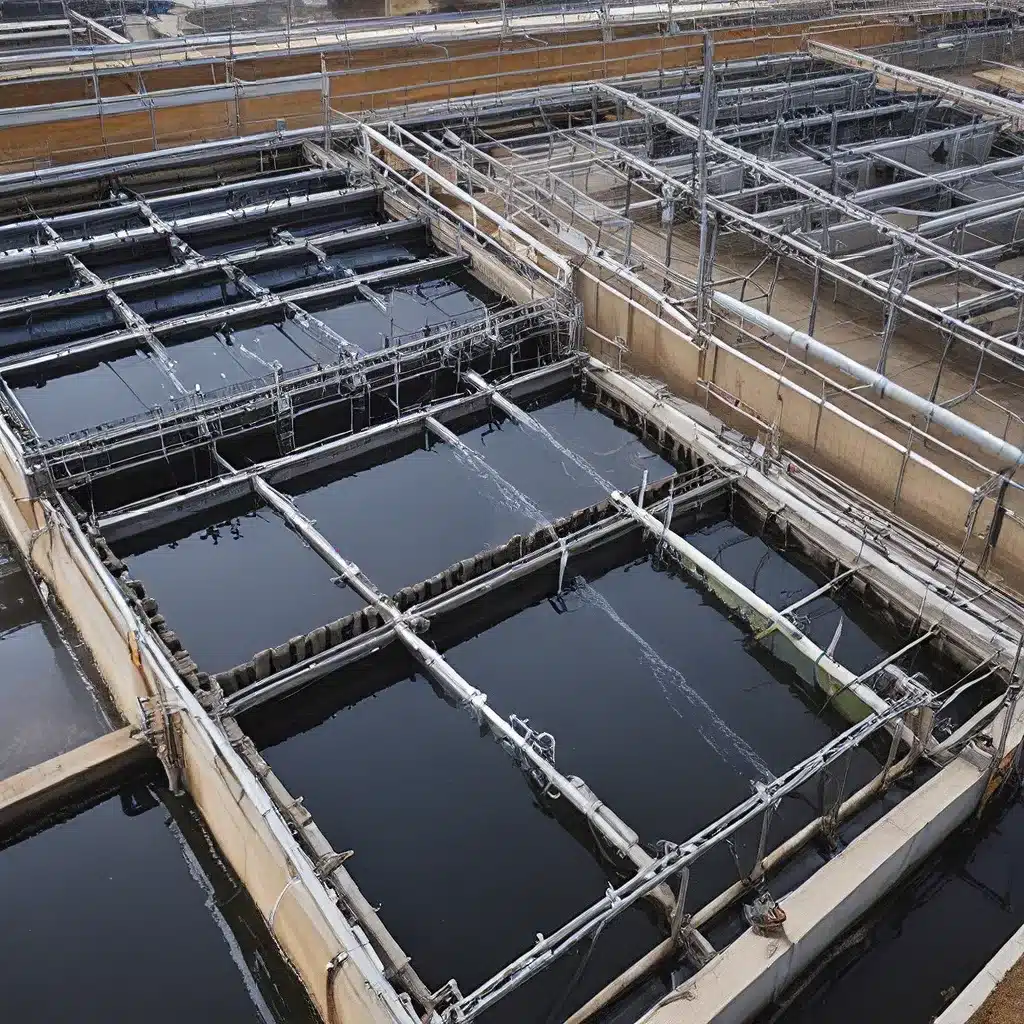
In the ever-evolving landscape of environmental solutions, one area that has seen a remarkable surge of innovation is the realm of wastewater treatment. Gone are the days of relying on outdated and inefficient methods. Today, a new generation of startups and visionaries are reshaping the way we approach this critical challenge, introducing game-changing technologies that are poised to transform the industry.
Harnessing the Power of AI
One such revolutionary approach is the integration of artificial intelligence (AI) into wastewater management. Kando Environmental Services, an Israeli company, has pioneered a groundbreaking technology that leverages AI to provide unparalleled insights into wastewater networks.
Kando’s solution revolves around a network of wireless data-gathering units installed in manholes, continuously collecting real-time data from the wastewater system. This information is then fed into Kando’s proprietary algorithms, which analyze the data and provide actionable insights to decision-makers.
Imagine being able to pinpoint the exact source of a contamination event or predict potential overflows before they even occur. This is the power of Kando’s AI-driven wastewater management system. By identifying changes and events in the network, operators can take immediate action to address issues, prevent environmental and public health damages, and optimize the overall efficiency of the wastewater treatment process.
But Kando’s impact extends far beyond just detecting problems. The company’s innovative approach has also helped to break down the traditional silos that have long plagued the wastewater industry. By providing a comprehensive view of the entire system, Kando’s technology has fostered collaboration and communication among different departments, from collection to treatment. This, in turn, has led to significant operational cost reductions and improvements in wastewater quality for reuse.
Harnessing the Sun’s Energy
While AI-powered solutions are revolutionizing the way we manage wastewater, other startups are exploring alternative energy sources to power their innovative treatment systems. Solar energy, in particular, has emerged as a promising avenue for sustainable wastewater treatment.
One such example is the work of Finland-based startup Solar Water Solutions. Their innovative solar desalination system harnesses the power of the sun to produce clean water, without the need for expensive photovoltaic panels or external power sources. By combining solar thermal energy and a multi-effect distillation process, Solar Water Solutions is able to remove salt and other impurities from seawater, providing a reliable and eco-friendly source of clean water for communities in need.
The benefits of this approach are twofold: not only does it reduce the carbon footprint associated with traditional desalination methods, but it also makes clean water accessible to remote, off-grid regions where access to reliable electricity is limited. This has been particularly impactful for the Maasai community in Kenya, where Solar Water Solutions’ technology has empowered the local people to become self-sufficient in managing their water resources.
Innovative Filtration and Water Reuse
While AI and renewable energy are shaping the future of wastewater treatment, other startups are tackling the challenge from a different angle: advanced filtration and water reuse. AquaTech Solutions, for example, has developed a breakthrough water filtration technology that combines physical, chemical, and biological processes to remove a wide range of contaminants.
One of the key advantages of AquaTech’s system is its focus on scalability and cost-effectiveness. By designing their filtration units to be modular and easy to install, the startup has made their technology accessible to both large-scale water treatment plants and small community systems. Moreover, the use of natural materials and bioactive agents in their filtration process reduces the reliance on harmful chemicals, making the technology more environmentally friendly.
But the real game-changer in the world of wastewater treatment may be the growing emphasis on water reuse. As water scarcity becomes an increasingly pressing global concern, industries are faced with the crucial decision of embracing water recycling to maintain production and alleviate the strain on water resources.
This shift towards a more holistic, ecosystem-based approach to water management is where digital innovations can truly shine. By leveraging machine learning and artificial intelligence, startups are developing intelligent systems that can oversee the entire water cycle, from production to treatment and reuse. These vigilant tools can identify issues, conserve water, enhance treatment processes, and prevent resource wastage – ultimately enabling industries to optimize their water reuse strategies and achieve maximum benefits.
Collaborating for Collective Impact
While the innovative solutions mentioned above are impressive in their own right, the true transformative power of the wastewater industry lies in the collaborative efforts between startups, governments, utilities, and local communities.
Take the example of Kando’s partnership with leading researchers from top Israeli institutions to detect COVID-19 outbreaks through wastewater surveillance. By harnessing the data-gathering capabilities of their AI-powered system, Kando was able to pinpoint hotspots down to specific neighborhoods and streets, empowering authorities to take swift action and contain the spread of the virus.
Similarly, the work of Water for All and the Clean Water Challenge has demonstrated the power of crowd-sourcing in driving innovation and implementing sustainable water solutions. These platforms have brought together a diverse range of experts, from engineers to entrepreneurs, to collaborate on designing and deploying cost-effective water purification systems and efficient irrigation methods in water-stressed regions around the world.
The Future of Wastewater Treatment
As we look towards the future, the potential for continued innovation in the wastewater treatment industry is truly exciting. With the rapid advancements in technologies like AI, renewable energy, and advanced filtration, the possibilities for creating a more sustainable, efficient, and equitable water management system are endless.
However, the success of these innovations will depend on our ability to foster collaboration, promote interdisciplinary partnerships, and empower local communities to take an active role in managing their water resources. By working together and harnessing the collective wisdom of startups, policymakers, and the public, we can revolutionize the way we approach wastewater treatment and pave the way for a more water-secure future.
So, let’s dive in, shall we? The future of wastewater treatment is waiting to be explored and shaped by those willing to challenge the status quo and reimagine the possibilities.


